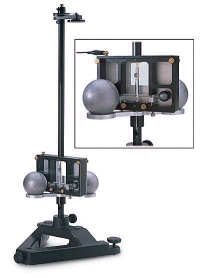 Scientists have been measuring the universal gravitational constant, G, for hundreds of years. But, how accurate are they in their measurements? Is G truly a constant? It’s a question physicists and astronomers continue to debate. Due to variations in experimentally obtained values for G, a number of postulates have been proposed which note that G may vary with time, and could be dependent on orientation, surrounding masses, even the curvature of space time!
Scientists have been measuring the universal gravitational constant, G, for hundreds of years. But, how accurate are they in their measurements? Is G truly a constant? It’s a question physicists and astronomers continue to debate. Due to variations in experimentally obtained values for G, a number of postulates have been proposed which note that G may vary with time, and could be dependent on orientation, surrounding masses, even the curvature of space time!
Complicating matters, experimental error in the determination of G is typically estimated at 1%, even with modern measuring equipment. Is G really a constant? Does it vary within this +/- 1% window? Is Newton’s Law of Universal Gravitation complete, or is there more to it? Recent studies continue to explore and debate these questions.
